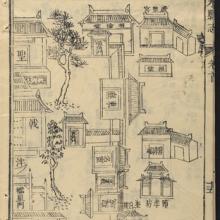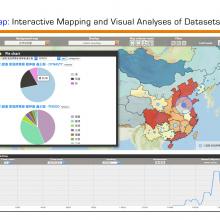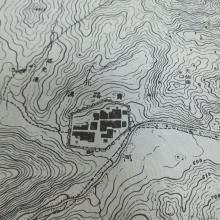RISE stands for "Research Infrastructure for the Study of Eurasia." Formerly known as "Asia Network," it is a pioneering approach for resource dissemination and emerging data analytics (such as text mining and other fair-use but consumptive research techniques) in the humanities. Developed by MPIWG, RISE is a software that facilitates the secure linkage between third-party research tools to various third-party textual collections (both licensed and open-access ones) via a standardized set of application programming interfaces (APIs) called SHINE. SHINE facilitates the exchange of textual resources, both open-access ones and protected (or licensed) ones that require authentication and authorization. Resource providers and research tool developers will find SHINE useful because it supports interoperability among resource repositories and research tools in a decentralized manner. Researchers will find SHINE useful because they will gain unprecedented access to textual resources in a machine-readable format, so that textual resources can be analyzed in research tools in a seamless and legal research workflow (SHINE, as an exchange format, could be adopted independently to facilitate interoperability without RISE).
RISE and SHINE revolutionizes how scholars can work with textual sources because, in the current environment, it is impossible for scholars to use digital research tools to analyze licensed textual collections without downloading or scraping the full texts, which violates licensing terms. The RISE software can securely link these licensed texts to digital research tools, thus allowing scholars to work in a legal manner and ensuring commercial publishers the safety of their collections under a secured virtual research environment. Such flexible, networked approach to e-infrastructure development avoids re-creating silos of resources in the digital realm and allow scholars to fully leverage the potential of material digitization and digital research tools.
Despite its current name, the RISE software can handle resources in all languages and can be customized to fit existing IT and content management systems. Many projects and infrastructures have proposed similar ideas, creating complex new initiatives that largely centralize resources in digital silos. Ours, by comparison, is a modular solution that works, allowing for interoperability between collections and research tools without (re-)aggregating resources. Scholarly research and structural design therefore remain intimately connected. This demonstrates the significant returns from our early investment into digital humanities research.
RISE’s design principles and ideas came from a collaboration with Staatsbibliothek zu Berlin and Leiden University. RISE’s modular design reflects our understanding of how research collaboration should also function in a modular manner. During our development of RISE’s software, Staabi provided digital sources via CrossAsia for research and testing. While we promote open access whenever possible, the reality is that many digitized resources in the humanities are still sold by publishers or private vendors. We have had to navigate this complex licensing terrain during our everyday work, and RISE is now a prototype primed for a model of technology transfer for humanists. We believe that this approach is the most fruitful one that would provide a sustainable technology transfer for humanists.




